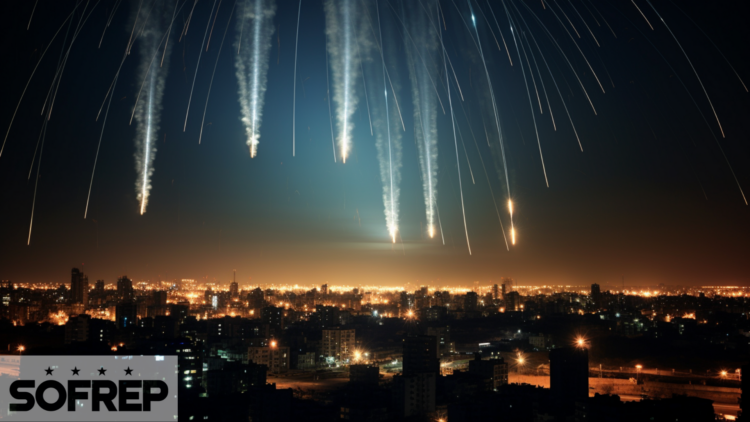Hezbollah in Lebanon. Formed with the help of Iran’s Islamic Revolutionary Guard Corps (IRGC), Hezbollah is one of Israel’s primary adversaries in the region. It receives substantial financial aid, an extensive arsenal of weapons, military training, and intelligence support from Iran. Hezbollah actively participates in regional conflicts in line with Iran’s interests.
Hamas in Palestine. Established in 1987 during the first Palestinian intifada, Hamas has received increasing military and economic assistance from Iran, particularly after the PLO’s peace agreements with Israel in the 1990s. Iran’s partnership with Hamas has grown, and the group is a key component of Iran’s strategy to counter Israel.
🚨🚨🚨FLASH FLASH FLASH: The next phase of the NEW Arab-Israeli War has begun!! Hezbollah launches an invasion of Israel from the Lebanon, with rockets, artillery and drones, as Hezbollah troops enter and attack Israel!
Fighting continues in Gaza as Hamas goes on the defensive!… pic.twitter.com/EozJbRp44L
— US Civil Defense News (@CaptCoronado) October 11, 2023
Militant Groups in Syria. Iran has established a significant presence in Syria, with more than 13 military bases across the country. The Imam Ali base near the Iraq border serves as a vital conduit for moving troops and supplies. Iran has also sought to position the Iraqi Kata’ib Hezbollah militia in Syria and created a new pan-Shia group, the al-Imam Hussein division, with members from various countries playing a role in arming Palestinian militants.
Arming Palestinian Groups in the West Bank. Iran’s Supreme Leader, Ayatollah Ali Khamenei, expressed the need to arm the West Bank, similar to Gaza, further emphasizing Iran’s commitment to supporting Palestinian groups.
The Geopolitical Implications
Iran’s strategic backing of Hamas and its broader regional objectives have several geopolitical implications, including:
- Stalling Regional Peace: Iran’s support for Hamas and its involvement in escalating tensions in the region serves to stall efforts toward regional peace and coexistence, such as the Abraham Accords.
- Strengthening Iran’s Position: Iran’s gains, particularly through its partnership with Hamas, help consolidate its regional influence. The unity of its regional proxies, including Hezbollah and Palestinian Islamic Jihad, furthers Iran’s position.
- Challenges for US Diplomacy: The US finds itself in a tricky situation as it seeks to maintain its support for Israel while avoiding being dragged into a major war in the Middle East. President Biden has expressed concerns about a potential Israeli occupation of Gaza, which could have severe diplomatic consequences.
~
In summary, Iran’s strategy to use Hamas as a tool to advance its regional ambitions is becoming increasingly evident. By allegedly escalating tensions in the region and disrupting efforts toward regional peace, Tehran seeks to strengthen its own position and counter the Abraham Accords.
The complex web of regional alliances and power dynamics makes the situation in the Middle East even more precarious, with Iran emerging as a significant player in the ongoing geopolitical chess game. The region’s future remains uncertain, with potentially far-reaching consequences for all parties involved.










COMMENTS